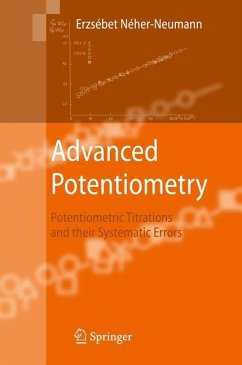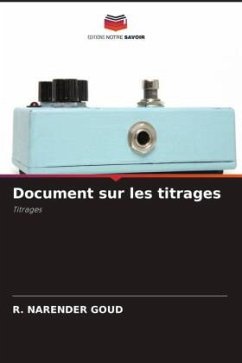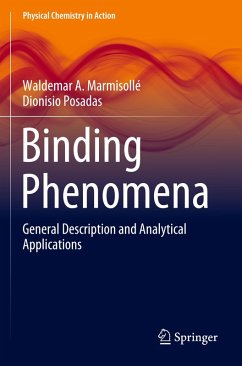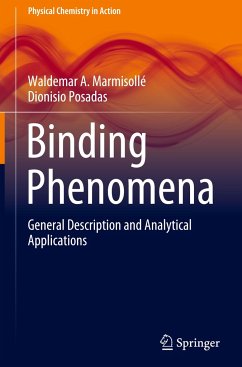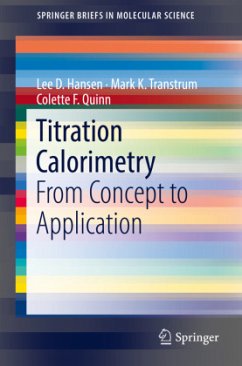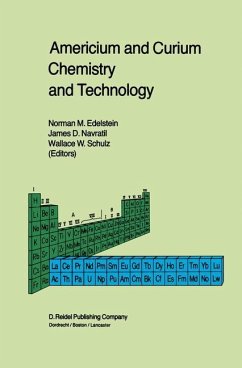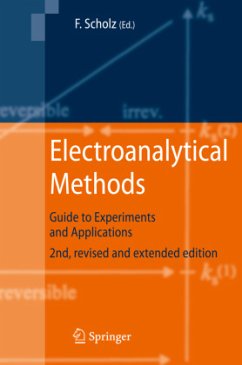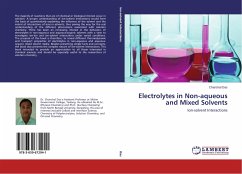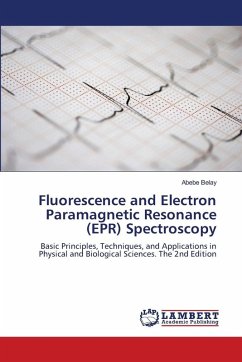
Document on Titrations
Titrations
Versandkostenfrei!
Versandfertig in 6-10 Tagen
29,99 €
inkl. MwSt.

PAYBACK Punkte
15 °P sammeln!
The titration in which the end point is obtained by measuring the change in potential of a suitable electrode during titration is called "Potentiometric Titration" (or) Determination of equivalence point of titration on the basis of potential measurements is called "Potentiometric Titrations". In this titration, indicator electrode (the electrode which responds to change in concentration of ions in solution) is combined which reference electrode to form a cell. During titration Electromotive Force (EMF) of the cell is measured. The EMF of the cell changes gradually till the end point and rapid...
The titration in which the end point is obtained by measuring the change in potential of a suitable electrode during titration is called "Potentiometric Titration" (or) Determination of equivalence point of titration on the basis of potential measurements is called "Potentiometric Titrations". In this titration, indicator electrode (the electrode which responds to change in concentration of ions in solution) is combined which reference electrode to form a cell. During titration Electromotive Force (EMF) of the cell is measured. The EMF of the cell changes gradually till the end point and rapidly at very close to the end point and then gradually changes after the end point. The Potentiometric titration is a laboratory method to determine the concentration of a given analyte. The analyte is a substance being analyzed by mass spectrometry, infrared spectroscopy, NMR spectroscopy, or chromatography. In NMR spectroscopy, the analyte is often a solution in a deuterated solvent such deuterochloroform (CDCl3; chloroform-D) or deuterated water (heavy water; D2O). It is used in the characterization of acids. In this method, there is no use of a chemical indicator.



